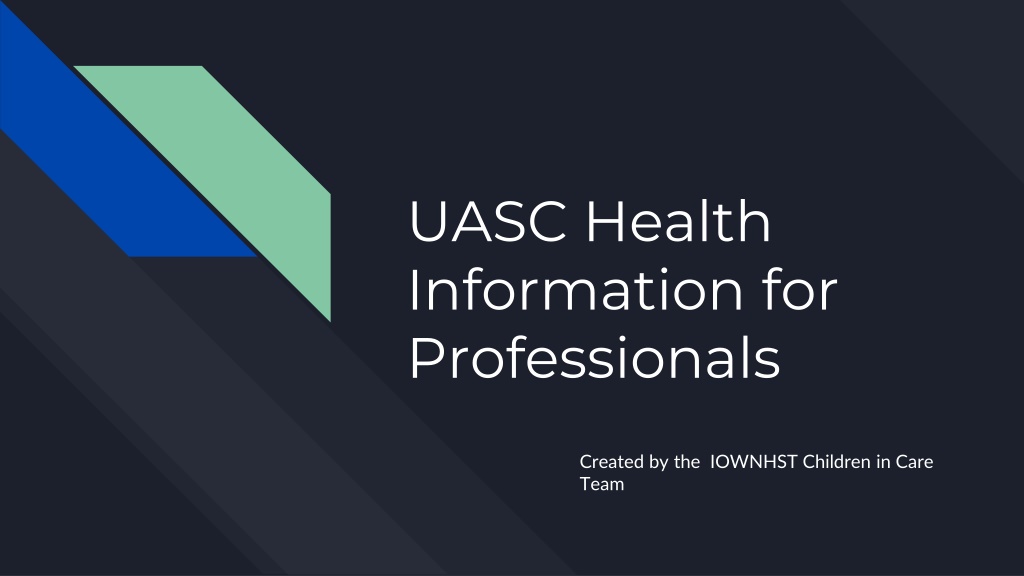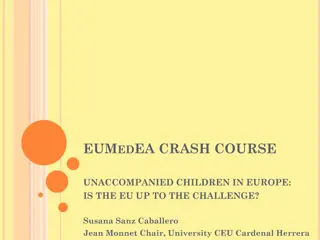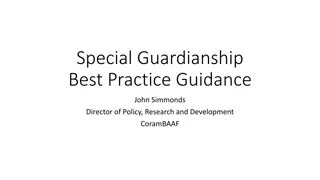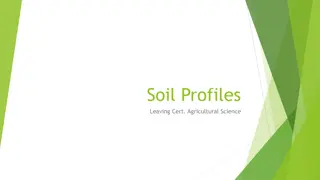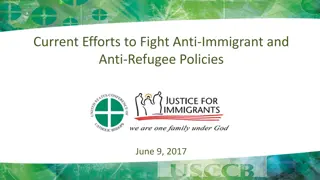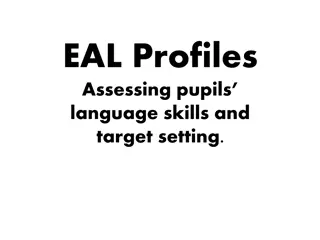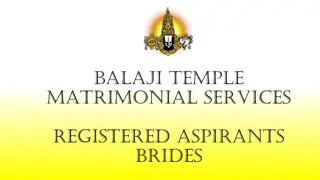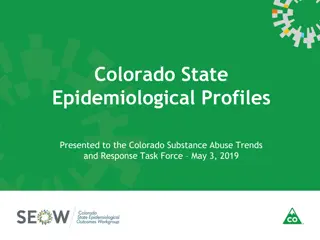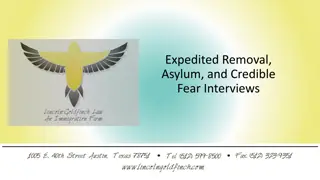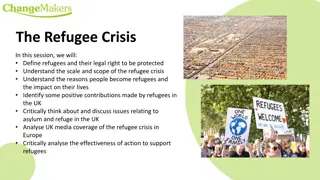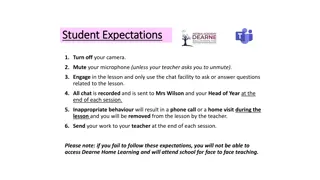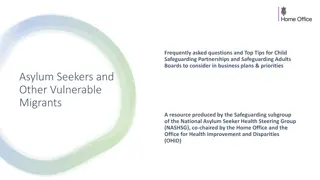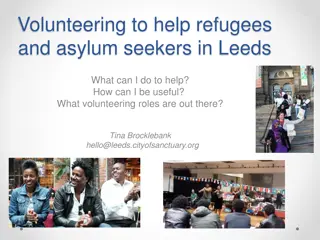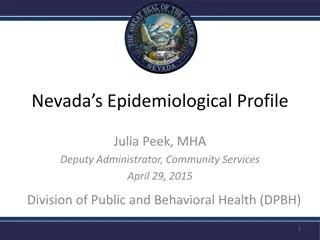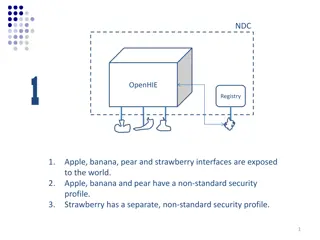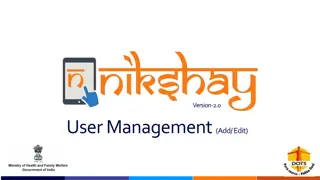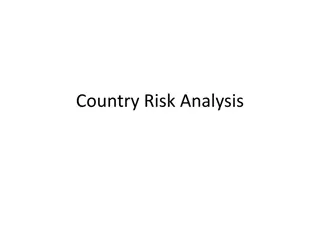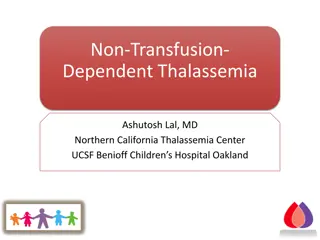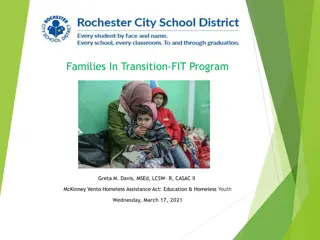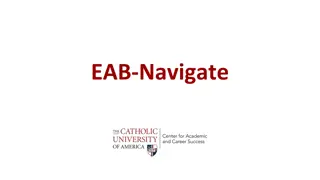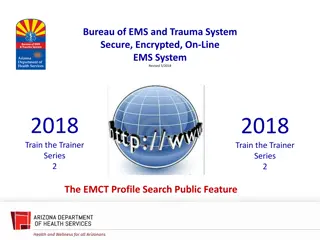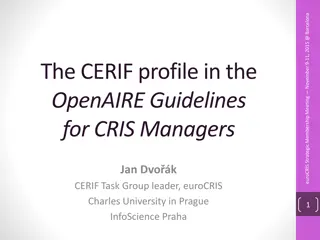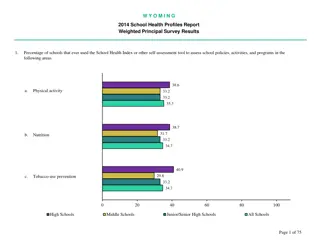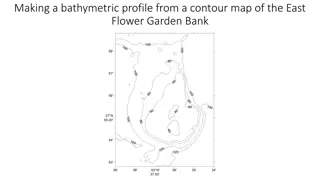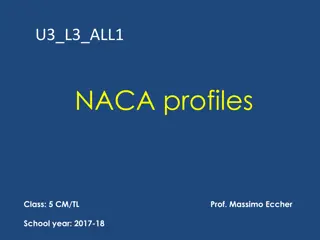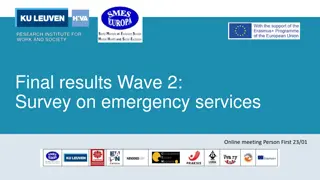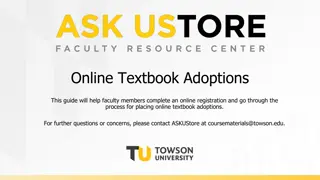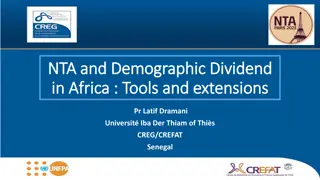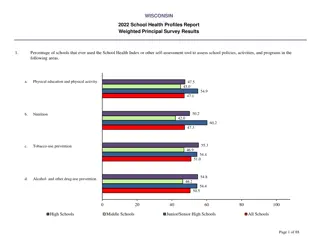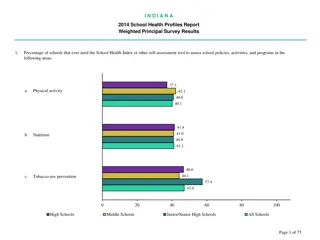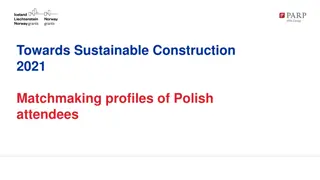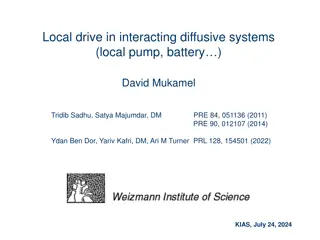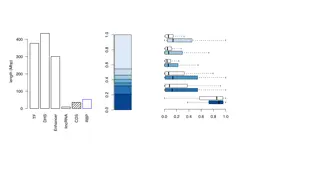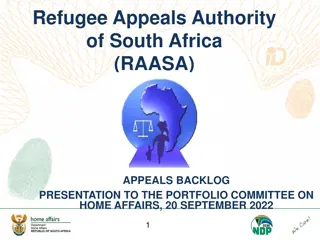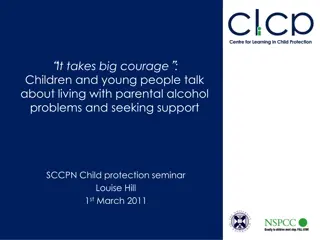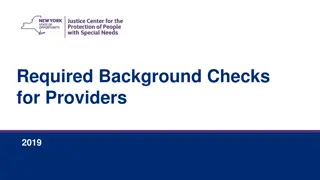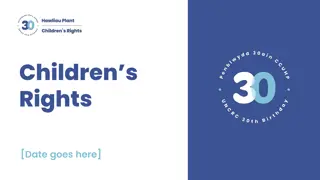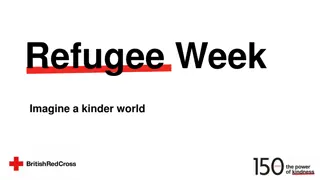Understanding Unaccompanied Asylum-Seeking Children (UASC): Country Profiles & Background Information
Explore key facts and information on unaccompanied asylum-seeking children (UASC), including their backgrounds, legal status, and profiles of countries like Syria, Iran, Sudan, and Eritrea where many UASC originate from. Learn about their languages spoken, major religions, and unique cultural aspects.
Download Presentation

Please find below an Image/Link to download the presentation.
The content on the website is provided AS IS for your information and personal use only. It may not be sold, licensed, or shared on other websites without obtaining consent from the author. Download presentation by click this link. If you encounter any issues during the download, it is possible that the publisher has removed the file from their server.
E N D
Presentation Transcript
UASC Health Information for Professionals Created by the IOWNHST Children in Care Team
Introduction - what is an UASC A UASC is an unaccompanied child seeking asylum , these are young people aged under 18 years who have travelled to another country to ask for asylum due to fear of persecution in their home country, and who have become separated from their usual parent or carer. Unaccompanied children are not a homogenous cohort with one narrative but rather, like any group of young people, are children of varying ages and from diverse backgrounds who have had a range of experiences prior to and during their asylum journey. Unaccompanied children may have experienced significant hardship prior to coming to the United Kingdom (UK), including the loss of a parent or carer. Following LAC (2003) 13 Guidance and the Hillingdon Judgement there is a clear legal need to respond to unaccompanied asylum seeking children as 'looked after children' under the Children Act 1989 .
Where are our UASC from? Many of our UASC come from the following countries:- -Syria -Iran -Sudan -Eritrea -Somalia -Kuwait -Albania -Afghanistan -Vietnam On the next few slides we will give some background information on the countries above.
Country profile - Syria Key Facts:- Languages spoken : Arabic Kurdish Armenian Armaic Circassian Major religions: Sunni Muslin 74% Other Muslim (Alawaite, Druze) 16% Christian 10% Jewish (communities in Damascus, Al Qamishli and Aleppo)
Country profile - Iran Key Facts:- Languages spoken : Persian and Persian dialects 58% Turkic and Turkic dialects 26% Kurdish 9% Luri 2% Balochi 1% Arabic 1% Turkish 1% Other 2% Major religions: Muslim 98% (Shia 89%, Sunni 9%) Other: includes Zoroastrian, Jewish, Christian, and Baha'i 2%
Country profile - Sudan Key Facts:- Languages spoken : Arabic (official) English (official) Nubian Ta Bedawie Diverse dialects of Nilotic, Nilo-Hamitic, Sudanic languages Major religions: Sunni Muslim 70% (in north) Christian 5% (mostly in south and Khartoum) Indigenous beliefs 25%
Country profile - Eritrea Key Facts:- Languages spoken : Tigrinya Arabic English Tigre Kunama Afar other Cushitic languages Major religions: Muslim Coptic Christian Roman Catholic Protestant
Country profile - Somalia Key Facts:- Languages spoken : Somali (official) Arabic Italian English Major religions: Sunni Muslim
Country profile - Kuwait Key Facts:- Languages spoken : Arabic (official) English Major religions: Muslim 85% (Sunni 70%, Shia 30%), other (includes Christian, Hindu, Parsi) 15%
Country profile - Albania Key Facts:- Languages spoken : Albanian 98.8% (official - derived from Tosk dialect) Greek Vlach Romani Slavic dialects Major religions: Muslim 70% Albanian Orthodox 20% Roman Catholic 10%.
Country profile - Afghanistan Key Facts:- Languages spoken : Afghan Persian or Dari (official) 50% Pashto (official) 35% Turkic languages (primarily Uzbek and Turkmen) 11% 30 minor languages (primarily Balochi and Pashai) 4%, much bilingualism Major religions: Sunni Muslim 80% Shia Muslim 19% Other 1%
Country profile - Vietnam Key Facts:- Languages spoken : Vietnamese (official) English French Chinese Khmer and other minor languages Major religions: Buddhism Catholic Protestant Hoahao Buddhims Caodism
Health needs of UASC Many unaccompanied children have significant physical and mental health needs. These are influenced by access to basic healthcare in their home country, their experience of hardship, including the witnessing and experiencing of traumatic events, and the duration of and conditions experienced on their journey to the UK. The most important physical health issues relate to: - Communicable (infectious) Diseases (e.g. Tuberculosis screening and vaccination) - Dental Health - Nutrition (e.g. anaemia) - Sexual and reproductive health - Women s health
Health needs of UASC cont. Unaccompanied children are also at high risk of mental illness. The prevalence of symptoms consistent with a mental illness in unaccompanied children has been reported as up to 48%. The most common mental illnesses reported in unaccompanied children are post-traumatic stress disorder (PTSD), mood disorders and agoraphobia. It is important to note that unaccompanied children may show delayed presentations of mental illness, necessitating ongoing surveillance and repeat assessment. The literature suggests that social workers play an important role in identifying children with symptoms of mental illness early, owing to their experience in supporting young people and the ongoing contact they have with the young person. It is important that health and social care practitioners receive appropriate training so that they can properly support the health needs of unaccompanied children.
Educational challenges Delays in accessing education- can be related to age disputes/being moved Language barrier Different prior educational system- exams not recognised/valued Interrupted education Previous trauma affects learning/concentration Unresolved immigration status at 18- affects entitlement to student finance/university
Key stresses related to the asylum process which can affect mental health Age assessment Re telling stories/credibility/memory Delays in interviews/decisions/appeals Reporting episodes Fear of refusal/deportation Exploitation/trafficking-pressure to pay back debts Navigating complex processes-immigration and care
Grief and Loss- What can be experienced as Loss? Family and friends (through death or separation) Community (cultural and unfamiliarity) Home Way of life Freedom Security Trust Wealth Cultural identity Time (lost periods of life due to individuals journey) Many young people will be experiencing symptoms of grief and unresolved mourning
How may emotional distress present in UASC Young People? Erratic Sleep patterns Poor Diet Anxiety- especially around key trigger points Lack of trust in adults Lack of willingness to engage in therapy Low mood/Depression Intrusive thoughts and memories PTSD symptoms- dissociation Psychosomatic symptoms Silence/withdrawal Placement instability-inability to settle Headaches Generalised body pains numbing the pain of loss through denial, avoidance and minimisation
Problems UASC may face on the Island and services they can access. While usually temporary, culture shock is common among UASC arriving in the UK. This could be made worse when placed on the Island due to the lack of cultural diversity compared to other areas of the Country. Identity crisis Identity is a big word that can mean different things to different people, having an identity can give you a sense of belonging, which is important to your well-being and confidence. Sometimes UASC struggle with their identity, especially when settling into an environment far from familiar such as the IOW. This can feel confusing and it may feel difficult to find their place in the world. https://www.childrenssociety.org.uk/
Practical strategies for Professionals Get to know young people as individuals, avoid generalisations due to culture, religion, country of origin Trust takes time to build-be flexible and organic Be warm and attuned, flexible and caring Allow for silence Don t ask big questions too soon Involve young people in normal day to day routine s Find activities that don t require language Use internet to explore their home country, language, culture, music
Conclusion Professionals should respect the knowledge and opinions of young people when planning appropriate intervention and recognise that they are the experts when it comes to understanding their countries of origin and the circumstances which they have endured. Working in partnership with young people will empower them to identify their own needs and enable professionals to assess holistically.
